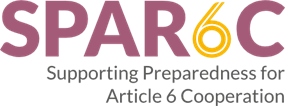Following the success of the first webinar, which introduced the fundamental concepts of carbon markets and Article 6 and discussed project development in Pakistan, the second webinar will delve deeper into the waste management sector. The sector is a critical area of focus for Pakistan’s climate action efforts. As urbanization and industrialization continue to rise, the country faces increasing pressure to manage its waste effectively, particularly to mitigate the methane emissions from landfills, an urgent contributor to climate change.
The waste sector provides a significant opportunity for methane reduction. With a large portion of the waste being biodegradable, methane capture and utilization projects in the sector could significantly reduce emissions. This webinar will explore the technical, financial, and policy dimensions of considering carbon markets in the waste sector, highlighting examples of ongoing initiatives and projects that aim to scale methane capture efforts across Pakistan.
As the second webinar in the series, this session aims to equip stakeholders with the knowledge and tools needed to engage in Article 6 cooperation, with a specific focus on carbon credit generation and the financial mechanisms supporting waste management projects. By understanding how to navigate the integration of the waste sector into global climate finance mechanisms, participants will gain practical insights that can help drive Pakistan’s transition to a low-carbon, climate-resilient economy.
Agenda
- Welcome attendees & presentation of the agenda
- Introduction to the SPAR6C project and the Article 6 Capacity building for industrial partners webinar series
- Welcome Address
- Government representative (MoCC&EC)
- Identification of mitigation options in the waste sector in Pakistan (Dr. Karima Hamouda, GFA Consulting Group)
- Role of Local Government and Private Sector in Carbon Market Integration (Babar Sahibdin, CEO LWMC)
- Discussion on Mechanisms and Policy Frameworks for Waste-to-Energy Projects (Discussion with experts from UNEP, GFA Consulting, and LWMC)
- Q&A/Closing Remarks

